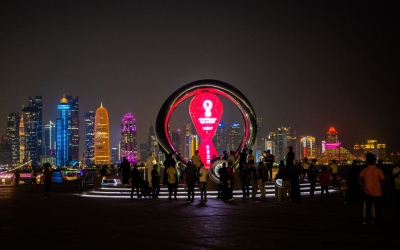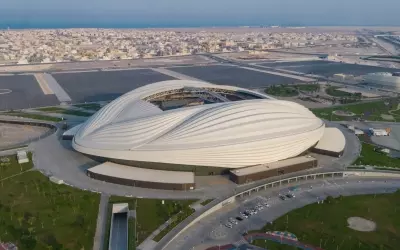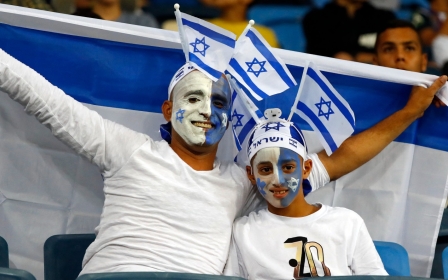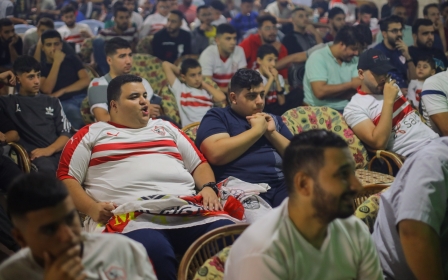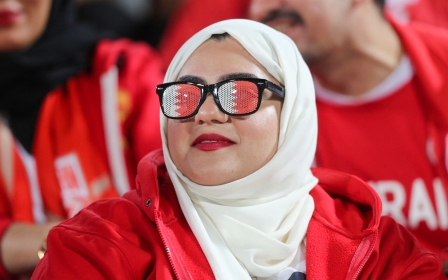Qatar World Cup: Can the host nation advance from the group stages?
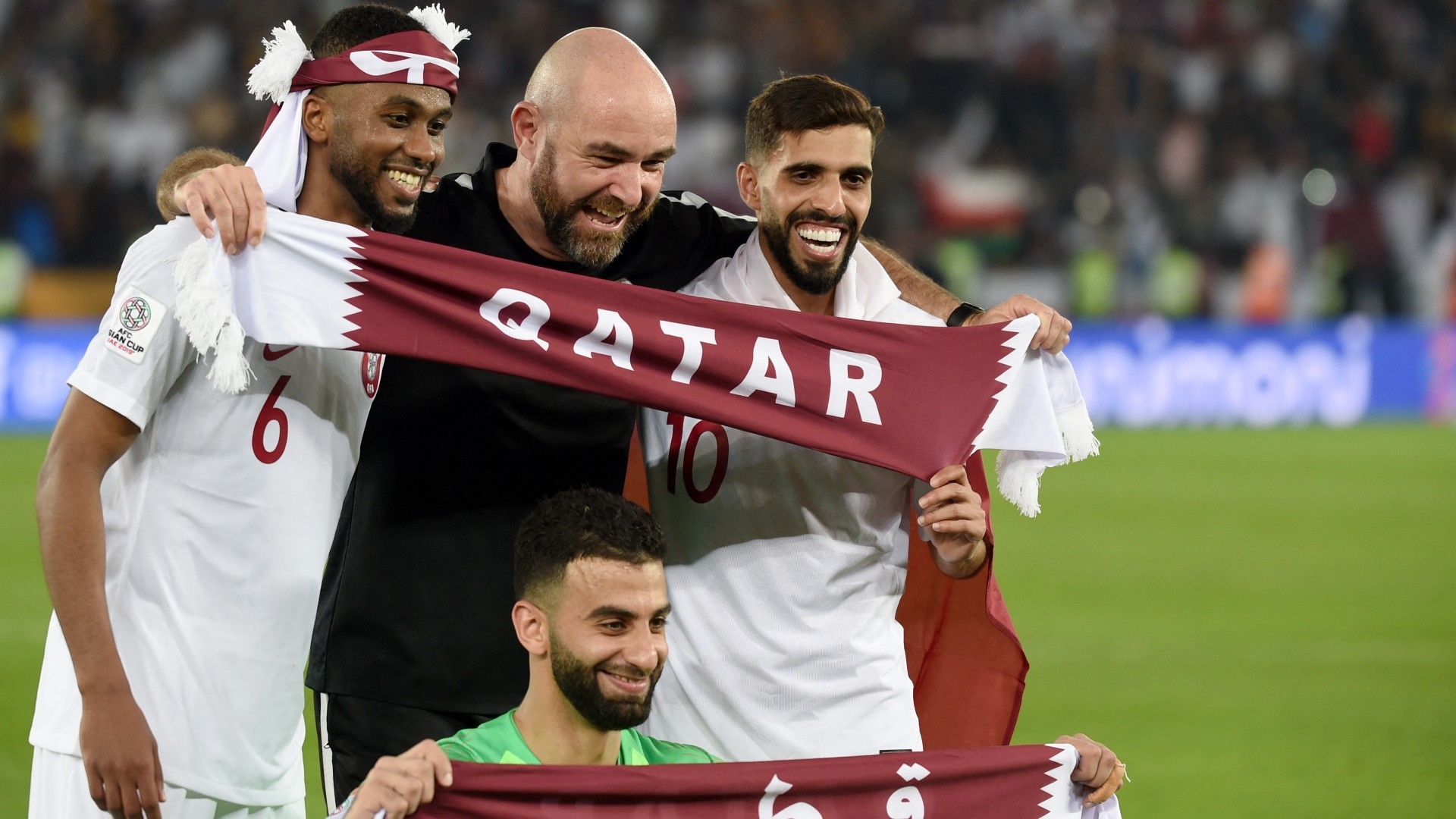
Qatar is making its first appearance at the World Cup this weekend and there are sure to be many sleepless nights ahead for Felix Sanchez.
The unheralded Spanish coach, who was working at the Aspire Academy at the time Qatar was awarded the World Cup back in 2010, has the momentous task of leading the host nation in its inaugural World Cup appearance.
As Qatar burned through coaches in the first seven years of their 12-year preparation for this tournament - there were no fewer than eight coaches from the announcement in 2010 to Sanchez's appointment in 2017 - the common belief was that Qatar would turn to an experienced hand or a big name to guide them through the tournament.
Names like Pep Guardiola, Arsene Wenger and Xavi were bandied about, but such was the compelling work Sanchez had done with this so-called "Golden Generation" of Qatari talent at underage level, he had the trust of the Qatari authorities to lead this team into their most important tournament ever.
He repaid that faith when he won the Asian Cup in 2019, but the World Cup is different.
At stake in every game is more than just three points. At stake is respect and legitimacy on the global stage.
It's an understatement to say that Qatar's hosting of this tournament is unpopular among world football's 'traditional' ruling class.
Of the many criticisms levelled at Qatar since their shock announcement as host has been an apparent lack of football history or tradition.
While such accusations also highlight the ignorance of those making the claim, on a true global stage it's hard to argue against given this will be Qatar's first ever World Cup appearance - just the second time in history a nation has hosted the tournament without previously participating.
The last time that occurred was when Italy hosted the second ever tournament in 1934.
Qatar on the global stage are an unknown commodity, so this tournament represents an opportunity to showcase their talent and prove they belong on the international stage.
So unpopular is their hosting it's not a stretch to say many are hoping they fail. That will vindicate everything that has been said over the previous 12 years.
"Since we won the honour of hosting the World Cup, Qatar has been subjected to an unprecedented campaign that no host country has ever faced," Qatar's ruler, Tamim bin Hamad Al Thani, told the state's legislative body, the Shura council, in a speech last month.
"We initially dealt with the matter in good faith, and even considered that some criticism was positive and useful, helping us to develop aspects that need to be developed. But it soon became clear to us that the campaign was continuing, expanding and including fabrication and double standards, until it reached a level of ferocity that made many question, unfortunately, [its] reasons and motives."
'Developed in unity'
So, as Sanchez prepares his team for the tournament he carries a sizeable burden - the hopes and aspirations of an entire country - on his shoulders.
The question, therefore, is simple: is Qatar ready? But the answer is less so.
There's always a challenge for the host nation of any World Cup to prepare its team, given the lack of competitive football - as a result of not needing to go through qualification - in the preceding four years.
In the build up to any World Cup the best gauge of form is how players are performing at club level. Is the striker in a rich vein of scoring form? Is the goalkeeper keeping regular cleansheets? Is the midfield dynamo providing assists?
In the case of Qatar, we simply don't know because all national team players were pulled from their club sides for a six-month national team training camp in Europe, during which the only opportunity we got to see them play was in a handful of friendly matches.
There are serious questions being asked of Qatar heading into this tournament, considering how poor some of the performances and results have been.
The 2-0 loss to Canada in September had alarm bells ringing. The scoreline flattered Qatar. The players looked tired and out of ideas. They looked like a team that was short on competitive football and were under-prepared.
While they rebounded with a more impressive 2-2 draw against Chile, their form in friendly matches over the past 12 months leaves a lot to be desired.
But, not everyone is concerned. Qatari journalist Ali Salat has watched the team closely over a number of years and is confident they can turn their form around.
"[Fluctuation of form is] a very common thing to happen in the world of football," he told Middle East Eye.
"This is a team that has developed in unity, [so] of course they would give us great football action, but also yes we have seen some rather poor results which the team can carry the experience from."
While their friendly results may puzzle, in recent years, they have shown a tendency to rise to the occasion when competitive football comes around; be it the Asian Cup that they won in 2019, the Gold Cup in 2021 where they made the semi-final or the Arab Cup at the end of 2021, where they only narrowly lost to Algeria in the semi-final.
"Our national team is capable of taking big upset wins," Salat continued. "Many fans around the world might underestimate us but we are capable of doing it."
The team has now recorded five straight wins over the past month as they build up to Qatar, albeit against somewhat weaker opposition. But winning form is good form.
While confidence within the country may remain, the big question from those on the outside is can they flick that switch again when the World Cup comes around?
It's the question that will be keeping Sanchez awake at night.
Middle East Eye propose une couverture et une analyse indépendantes et incomparables du Moyen-Orient, de l’Afrique du Nord et d’autres régions du monde. Pour en savoir plus sur la reprise de ce contenu et les frais qui s’appliquent, veuillez remplir ce formulaire [en anglais]. Pour en savoir plus sur MEE, cliquez ici [en anglais].


